
Chiang Mai: The Jewel of Northern Thailand
Nestled in the mountainous region of Northern Thailand, Chiang Mai is a city that beautifully blends historic charm with modern allure. Known as the 'Rose of the North,' this city offers a rich tapestry of experiences, from ancient temples and bustling street markets to serene nature and vibrant festivals. Chiang Mai's Old City is a treasure trove of history, encircled by remnants of ancient walls and moats. Within its borders, you'll find a plethora of temples, each more stunning than the last. Wat Phra Singh and Wat Chedi Luang are must-visit landmarks that showcase exquisite Lanna architecture and provide a glimpse into the city's spiritual heritage. Beyond the Old City, Chiang Mai is a gateway to adventure. The surrounding hills and forests invite outdoor enthusiasts to trek, zip-line, and explore lush landscapes. Doi Suthep, a sacred mountain just outside the city, offers breathtaking views and a chance to visit Wat Phra That Doi Suthep, a revered Buddhist temple with a golden stupa. The city's vibrant markets are another highlight. The Night Bazaar, Sunday Walking Street, and Warorot Market are perfect spots to shop for local crafts, taste delicious street food, and immerse yourself in the lively atmosphere. The annual Yi Peng Lantern Festival is a magical event where thousands of lanterns light up the night sky, creating an unforgettable experience. Chiang Mai's fusion of culture, nature, and adventure makes it a top destination for travelers seeking a unique and enriching experience. Whether you're looking to explore ancient sites, embark on outdoor adventures, or simply relax and enjoy the local cuisine, Chiang Mai has something for everyone.
Local tips in Chiang Mai
- Visit early in the morning to major temples to avoid crowds and enjoy a more peaceful atmosphere.
- Wear comfortable shoes as the Old City is best explored on foot.
- Negotiate prices at markets, but always do so politely and with a smile.
- Try Khao Soi, a local specialty dish that you won't find easily outside Northern Thailand.
- If visiting during the Yi Peng Lantern Festival, book your accommodation well in advance.
- Use songthaews (red trucks) for affordable and convenient local transport.
Neighbourhoods in Chiang Mai
Chiang Mai: The Jewel of Northern Thailand
Nestled in the mountainous region of Northern Thailand, Chiang Mai is a city that beautifully blends historic charm with modern allure. Known as the 'Rose of the North,' this city offers a rich tapestry of experiences, from ancient temples and bustling street markets to serene nature and vibrant festivals. Chiang Mai's Old City is a treasure trove of history, encircled by remnants of ancient walls and moats. Within its borders, you'll find a plethora of temples, each more stunning than the last. Wat Phra Singh and Wat Chedi Luang are must-visit landmarks that showcase exquisite Lanna architecture and provide a glimpse into the city's spiritual heritage. Beyond the Old City, Chiang Mai is a gateway to adventure. The surrounding hills and forests invite outdoor enthusiasts to trek, zip-line, and explore lush landscapes. Doi Suthep, a sacred mountain just outside the city, offers breathtaking views and a chance to visit Wat Phra That Doi Suthep, a revered Buddhist temple with a golden stupa. The city's vibrant markets are another highlight. The Night Bazaar, Sunday Walking Street, and Warorot Market are perfect spots to shop for local crafts, taste delicious street food, and immerse yourself in the lively atmosphere. The annual Yi Peng Lantern Festival is a magical event where thousands of lanterns light up the night sky, creating an unforgettable experience. Chiang Mai's fusion of culture, nature, and adventure makes it a top destination for travelers seeking a unique and enriching experience. Whether you're looking to explore ancient sites, embark on outdoor adventures, or simply relax and enjoy the local cuisine, Chiang Mai has something for everyone.
When is the best time to go to Chiang Mai?
Iconic landmarks you can’t miss
Tha Phae Gate
Discover Tha Phae Gate, a historic landmark in Chiang Mai where tradition meets vibrant culture and bustling markets, perfect for an unforgettable experience.
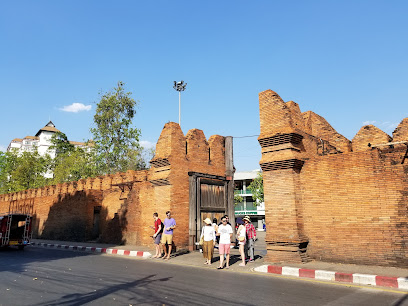
Chiang Mai Night Bazaar
Experience the lively atmosphere of Chiang Mai Night Bazaar, where vibrant culture meets delicious street food and unique shopping.
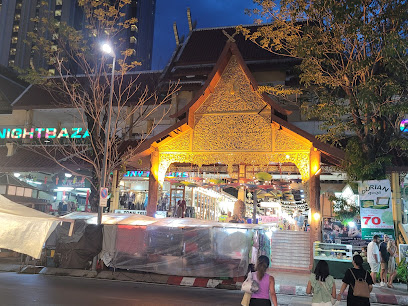
Wat Phra Singh Woramahawihan
Experience the spiritual serenity and exquisite architecture of Wat Phra Singh, a must-visit Buddhist temple in Chiang Mai, Thailand.
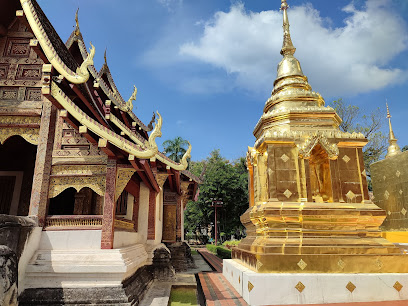
Wat Chedi Luang
Discover the serene beauty and rich history of Wat Chedi Luang, a majestic Buddhist temple at the heart of Chiang Mai, Thailand.
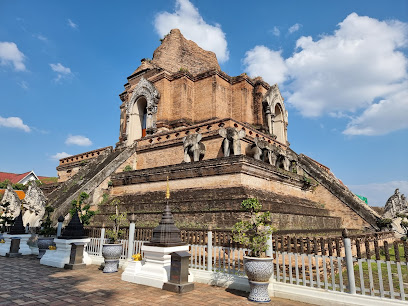
Wat Phra That Doi Suthep
Explore the sacred beauty of Wat Phra That Doi Suthep, a stunning Buddhist temple offering breathtaking views and rich cultural heritage in Chiang Mai.
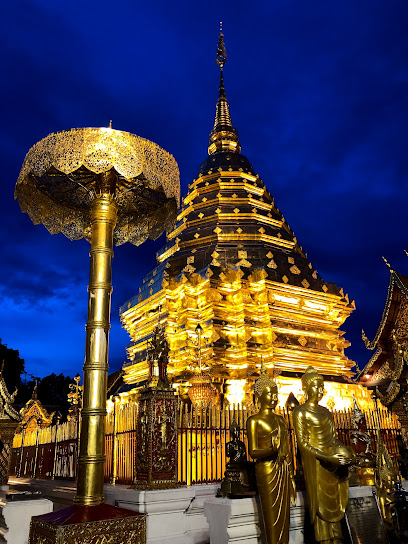
Wat Umong The Suan Buddha Dhamma
Discover tranquility at Wat Umong, a historical Buddhist temple in Chiang Mai, offering serene landscapes and a unique meditation experience.
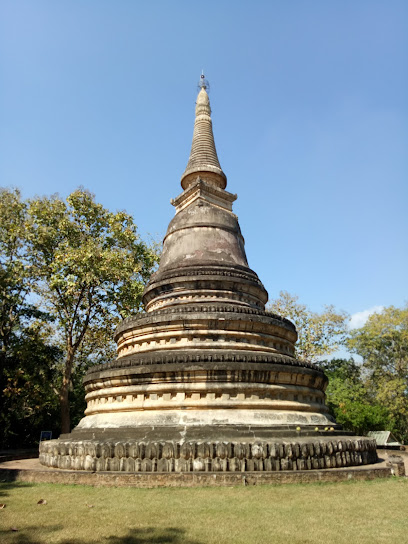
Kruba Srivichai Monument
Experience the tranquility and cultural richness of the Kruba Srivichai Monument, a must-visit landmark in Chiang Mai, Thailand.
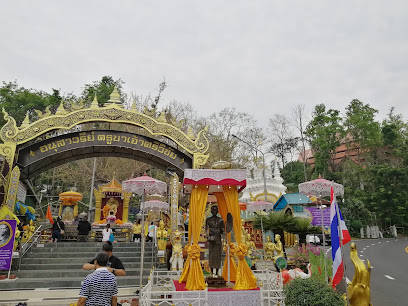
Royal Park Rajapruek
Explore the enchanting Royal Park Rajapruek in Chiang Mai, where lush gardens and cultural heritage await your discovery.
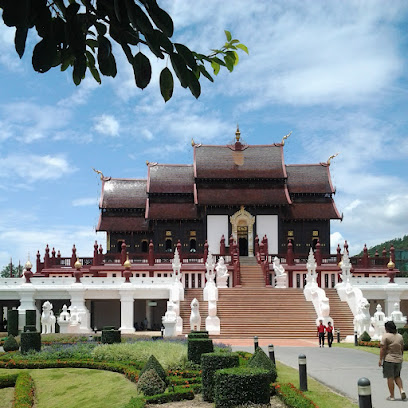
Three Kings Monument
Explore the rich history of Chiang Mai at the iconic Three Kings Monument, a tribute to the city's legendary founders and a must-visit tourist attraction.
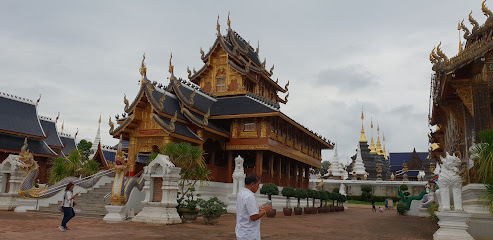
Hmong Doi Pui Village
Discover Hmong Doi Pui Village, a cultural haven in Chiang Mai, showcasing the rich heritage and traditions of the Hmong people through art, cuisine, and breathtaking landscapes.
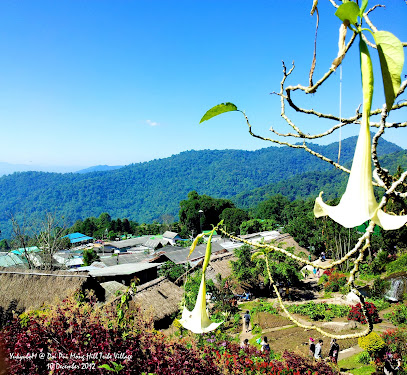
Doi Suthep-Pui National Park
Discover the breathtaking beauty of Doi Suthep-Pui National Park, a natural haven with stunning landscapes, rich wildlife, and cultural treasures near Chiang Mai.
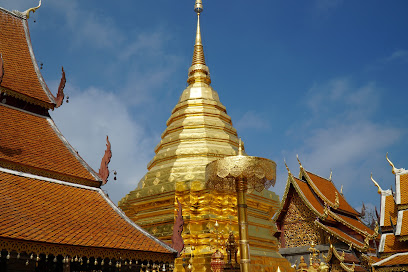
Wat Pha Lat
Discover the tranquil escape of Wat Pha Lat in Chiang Mai, a stunning Buddhist temple nestled amidst nature's beauty, perfect for reflection and peace.
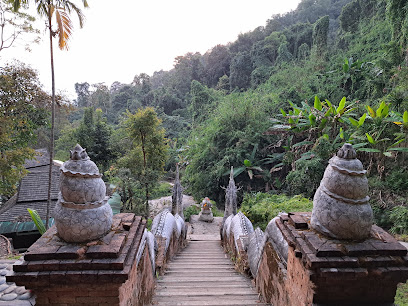
Bhubing Palace
Explore Bhubing Palace, a royal retreat in Chiang Mai surrounded by lush gardens and stunning views, perfect for a serene getaway and cultural insight.
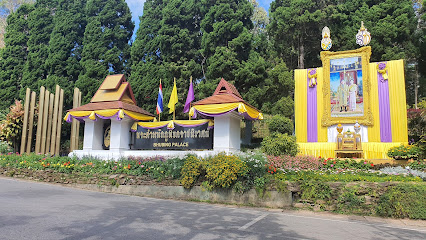
Wat Chiang Man
Discover the serene beauty and spiritual essence of Wat Chiang Man, Chiang Mai's oldest temple, a must-visit for travelers seeking cultural immersion.
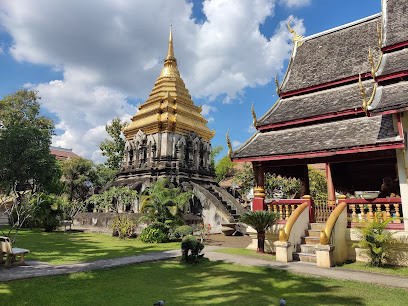
Baan Kang Wat
Discover the artistic charm of Baan Kang Wat, a vibrant village in Chiang Mai filled with workshops, cafés, and unique handcrafted souvenirs.
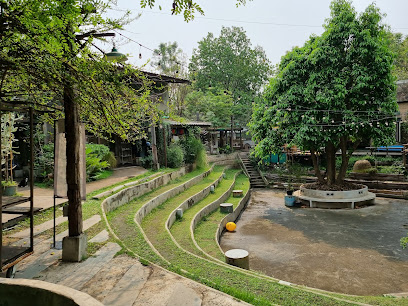
Unmissable attractions to see
Chiang Mai Night Bazaar
Experience the vibrant culture and culinary delights at Chiang Mai Night Bazaar, a must-visit night market in the heart of Chiang Mai.
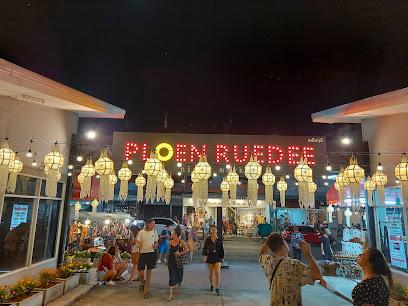
Wat Phra That Doi Kham
Experience the spiritual beauty and stunning views of Wat Phra That Doi Kham, a must-visit Buddhist temple in Chiang Mai, Thailand.
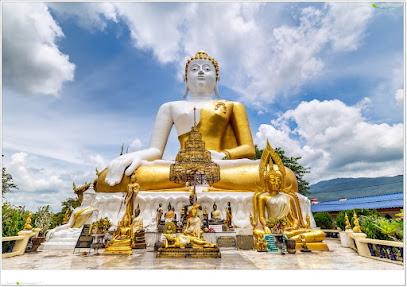
Wat Phra Singh Woramahawihan
Experience the spiritual serenity and architectural beauty of Wat Phra Singh, a historic Buddhist temple in the heart of Chiang Mai, Thailand.
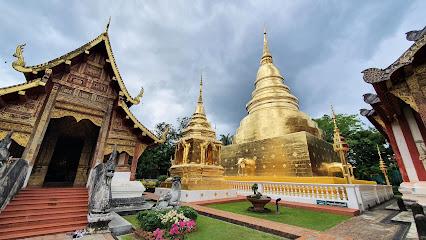
Watchediluang Varaviharn
Explore the rich history and spiritual tranquility of Wat Chedi Luang Varavihara, a stunning Buddhist temple in the heart of Chiang Mai.
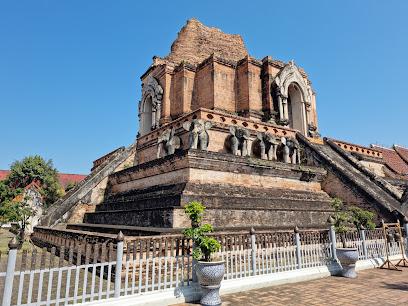
Wat Phra That Haripunchai Woramahawihan
Discover the serene beauty and rich history of Wat Phra That Haripunchai, a premier Buddhist temple in Lamphun, Thailand, known for its stunning architecture and cultural significance.
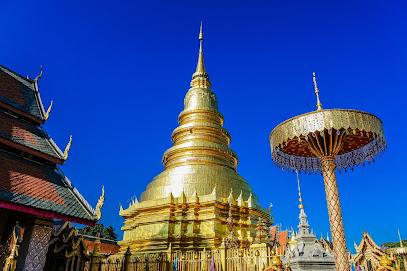
Mon Jam
Discover the breathtaking beauty of Mon Jam, a stunning garden retreat in Chiang Mai, offering panoramic views and a tranquil escape into nature.
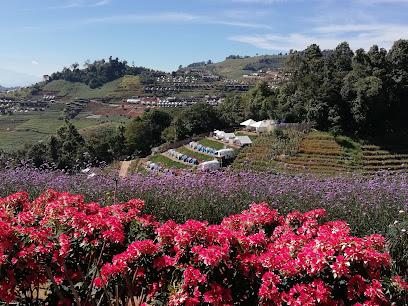
San Kamphaeng Hot Springs
Experience ultimate relaxation at San Kamphaeng Hot Springs in Chiang Mai, where nature meets tranquility and wellness in every soak.
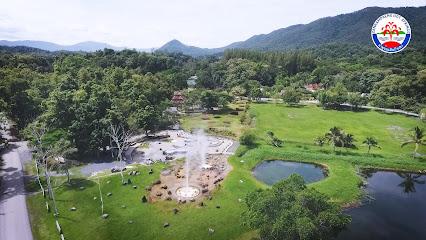
Wat Phra That Doi Suthep
Discover the spiritual heart of Chiang Mai at Wat Phra That Doi Suthep, a stunning temple with breathtaking views and rich cultural heritage.
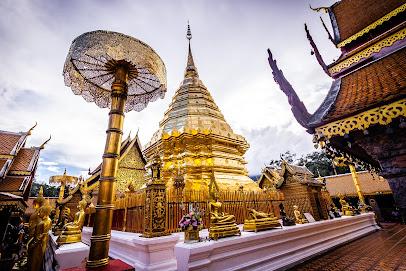
Chiang Mai Night Safari
Discover the enchanting world of nocturnal wildlife at Chiang Mai Night Safari, a captivating attraction for families and animal lovers alike.
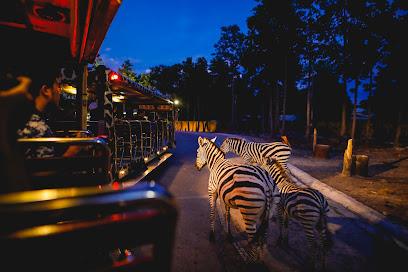
Wat Umong Suan Putthatham
Discover the serene beauty and rich history of Wat Umong Suan Putthatham, a Buddhist temple and cultural gem in Chiang Mai, Thailand.

Wachirathan Waterfall
Discover the breathtaking beauty of Wachirathan Waterfall in Chiang Mai, a majestic cascade set within lush nature, perfect for adventurers and nature lovers.
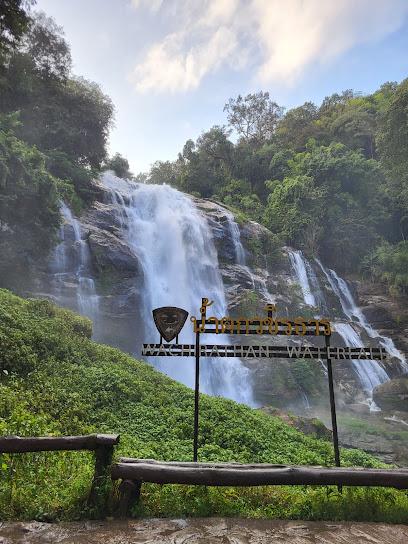
Chiang Mai Zoo
Explore Chiang Mai Zoo, a captivating destination showcasing diverse wildlife amidst lush surroundings in the heart of Thailand.
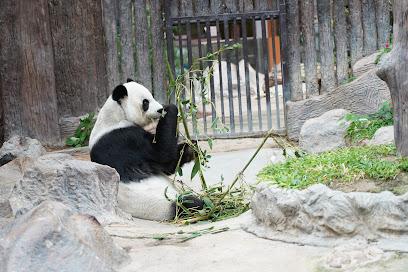
Royal Park Rajapruek
Discover the beauty and tranquility of Royal Park Rajapruek, a captivating blend of nature and Thai culture in Chiang Mai.
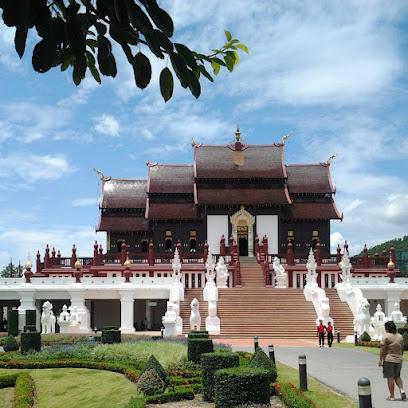
Chiang Mai Gate Market
Experience the vibrant culture and flavors of Chiang Mai at the Gate Market, where local delicacies and unique crafts await every visitor.
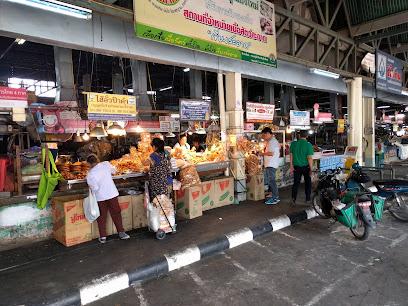
Wat Den Sali Si Mueang Kaen (Wat Ban Den)
Discover the beauty and serenity of Wat Den Sali Si Mueang Kaen, a stunning Buddhist temple in Chiang Mai's Mae Taeng District, rich in culture and tranquility.
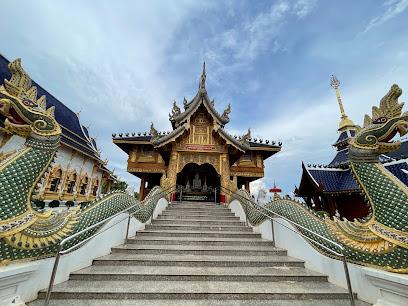
Essential places to dine
Tong Tem Toh
Savor authentic Northern Thai cuisine at Tong Tem Toh in Chiang Mai – a culinary delight that embodies local flavors and culture.
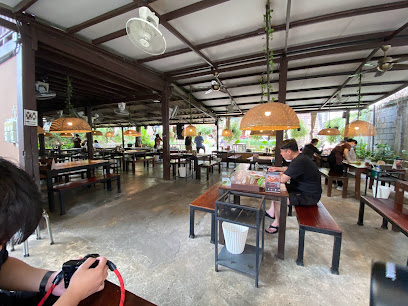
The Good View Bar & Restaurant Chiang Mai
Discover authentic Thai and Southeast Asian cuisine at The Good View Bar & Restaurant in Chiang Mai—where delightful flavors meet stunning riverside views.
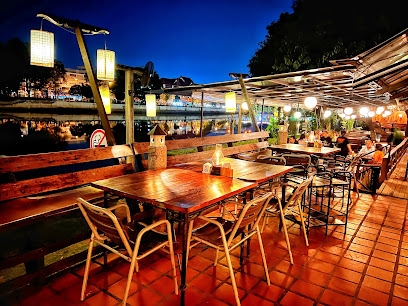
Galae Restaurant
Discover the rich flavors of authentic Thai cuisine at Galae Restaurant in Chiang Mai - where tradition meets taste.
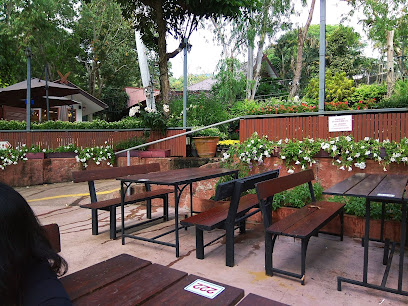
Huen Phen
Experience authentic Thai flavors at Huen Phen in Chiang Mai—where tradition meets taste in every delightful dish.
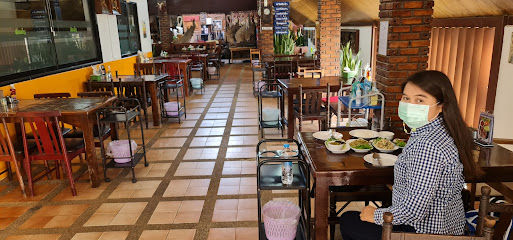
Dash
Experience authentic Thai cuisine at Dash in Chiang Mai—where tradition meets modernity in every flavorful dish.
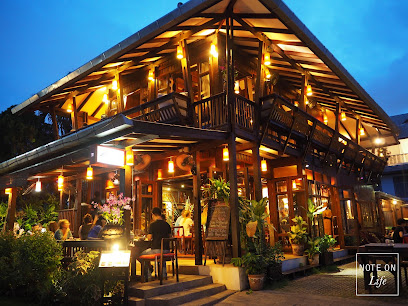
Coconut Shell Thai Food
Discover authentic Thai cuisine at Coconut Shell Thai Food in Chiang Mai—where every dish tells a story through its rich flavors.
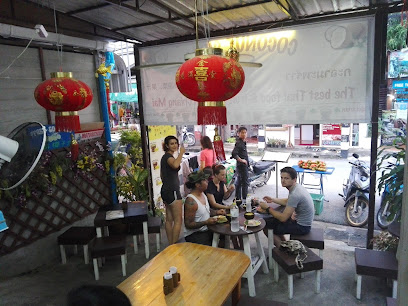
Its Good Kitchen (ครัวลำดี)
Experience authentic Thai cuisine at Its Good Kitchen in Chiang Mai—where flavor meets tradition in every dish.
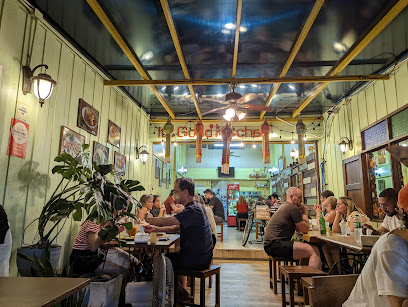
GINGER FARM kitchen at ONENIMMAN Chiangmai
Discover authentic Thai cuisine with a modern twist at Ginger Farm Kitchen in One Nimman, Chiang Mai – where fresh ingredients meet culinary creativity.
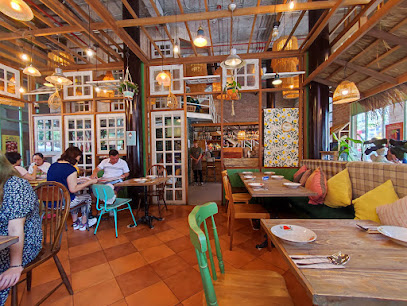
Hummus Chiang Mai
Experience authentic Middle Eastern flavors at Hummus Chiang Mai - where deliciousness meets tradition in every bite.
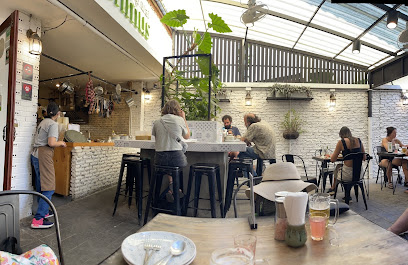
Goodsouls Kitchen - Vegan Restaurant
Experience vibrant plant-based cuisine at Goodsouls Kitchen in Chiang Mai – where health meets flavor in every delicious bite.
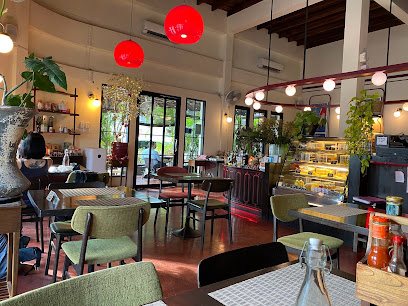
The Riverside Bar & Restaurant
Experience authentic Thai cuisine with stunning riverside views at The Riverside Bar & Restaurant in Chiang Mai.
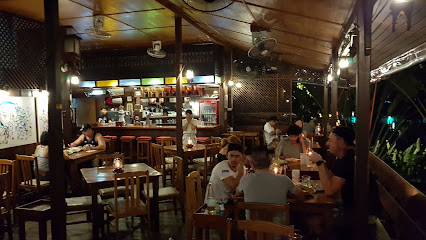
THE HOUSE by Ginger
Experience authentic Thai cuisine at THE HOUSE by Ginger in Chiang Mai – where tradition meets flavor in every dish.
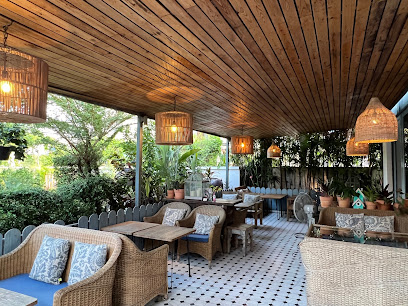
Cafe de Thaan Aoan
Experience the best breakfast and dessert delights at Cafe de Thaan Aoan in Chiang Mai - where flavors meet tradition.
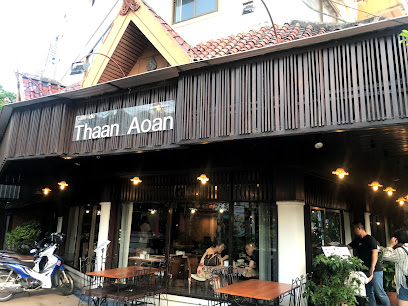
Aroy Dee
Experience authentic Thai flavors at Aroy Dee in Chiang Mai - where every dish tells a story.
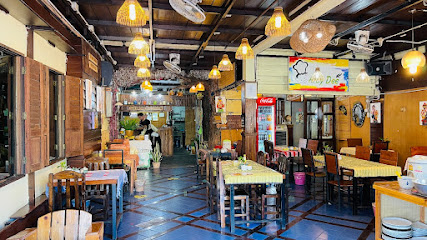
Reform Kafé - Vegan Garden Restaurant
Discover the best vegan garden restaurant in Chiang Mai offering delicious plant-based dishes in a serene setting.
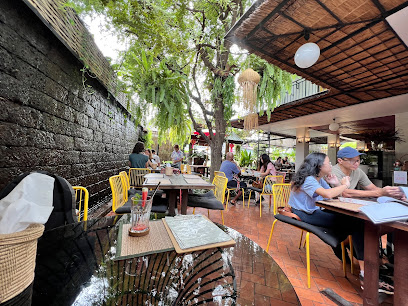
Markets, malls and hidden boutiques
MAYA Lifestyle Shopping Center Chiangmai
Explore the vibrant MAYA Lifestyle Shopping Center in Chiang Mai for shopping, dining, and entertainment, all in one stylish venue.
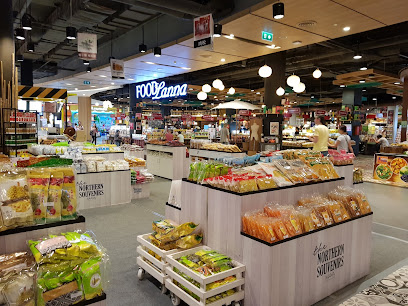
UNIQLO CentralFestival Chiangmai Store
Explore stylish and affordable fashion at UNIQLO CentralFestival Chiangmai, where trendy meets comfort in the heart of the city.
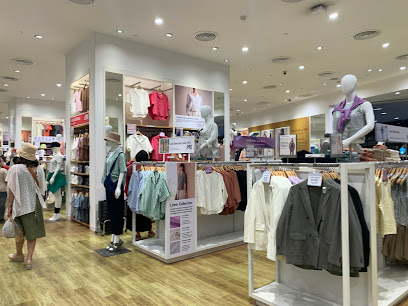
Herb Basics
Explore the enchanting Herb Basics in Chiang Mai for a unique blend of cosmetics, bakery delights, coffee, and herbal treasures.
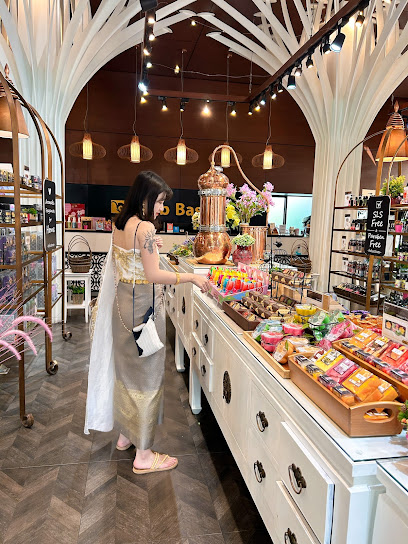
PLAYWORKS SHOP&CAFE
Discover the perfect blend of shopping and dining at Playworks Shop & Cafe in Chiang Mai, where local craftsmanship meets delightful flavors.
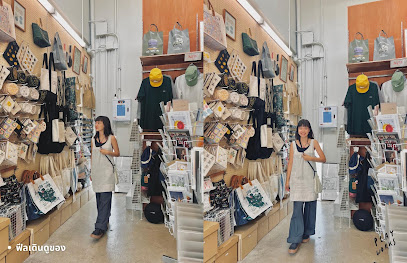
ChiangmaiCotton
Explore ChiangmaiCotton: A treasure trove of authentic Thai textiles and vibrant cotton clothing in the heart of Chiang Mai.
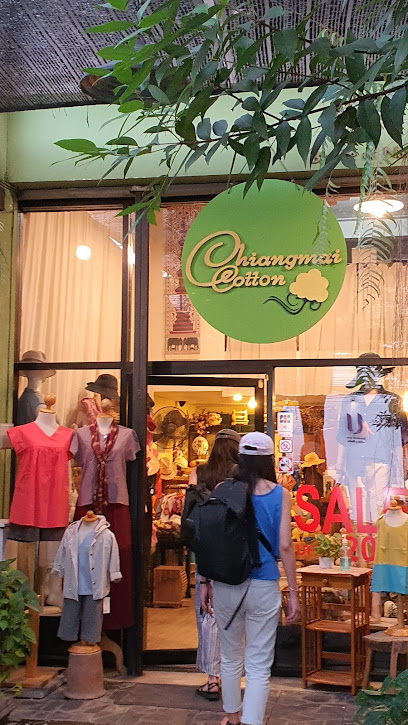
Chanya Shops and Gallery
Discover modern clothing and local artistry at Chanya Shops and Gallery, a premier shopping destination in Chiang Mai offering a unique blend of style and culture.
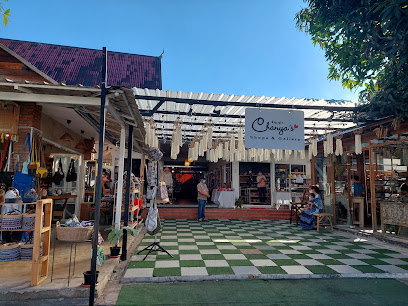
Atitan Art Store
Explore a treasure trove of antiques and art in Chiang Mai's Atitan Art Store, a cultural haven for every art enthusiast.
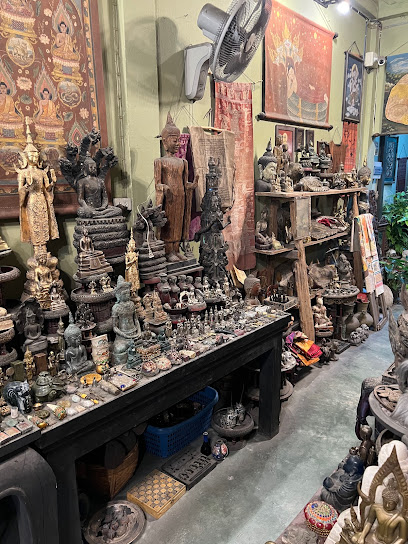
Mosaic Market Chiang Mai
Discover the vibrant Mosaic Market in Chiang Mai, a boutique paradise offering art, delectable café treats, and pampering nail services.
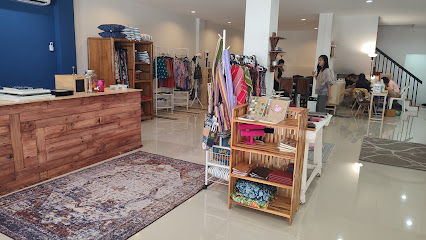
Rojana Art & Souvenirs
Explore Rojana Art & Souvenirs in Chiang Mai for unique gifts and authentic Thai craftsmanship amidst a charming shopping atmosphere.
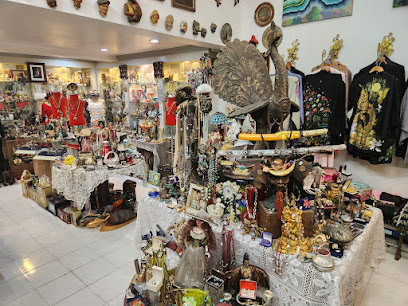
ByDesign Chiangmai
Explore ByDesign Chiangmai for an authentic shopping experience filled with unique handicrafts and local treasures in the heart of Chiang Mai.
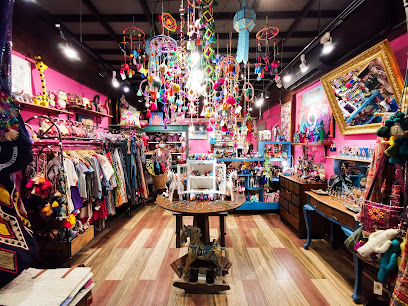
Needle and Clay
Discover unique handcrafted souvenirs at Needle and Clay, a charming store in the heart of Chiang Mai, reflecting Thailand's rich cultural heritage.
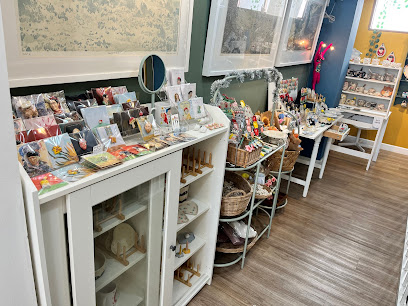
Nong Handmade Leather and Canvas Bags
Discover unique handmade leather and canvas bags in Chiang Mai, where craftsmanship meets culture in every exquisite piece.
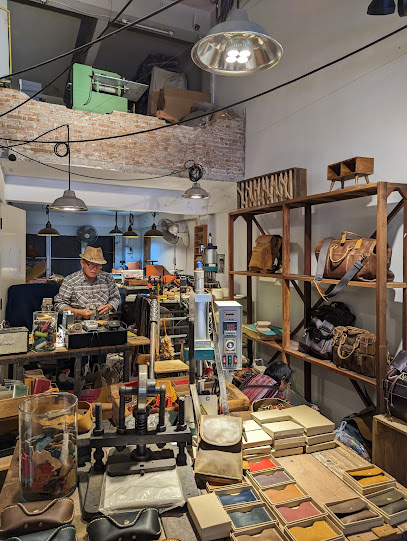
Buya made it
Experience the unique blend of high-quality craftsmanship and local artistry at Buya Made It Boutique in Chiang Mai.
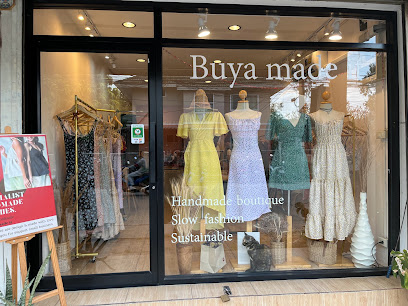
De Quarr Crafting Communities
Explore De Quarr Crafting Communities in Chiang Mai for unique, handcrafted souvenirs that reflect the rich local culture and artistry.
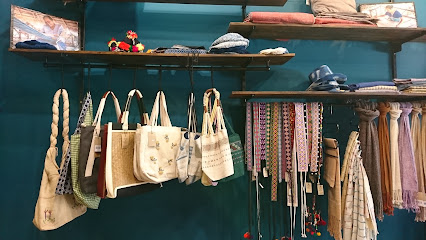
Thai Ang Art
Explore the rich heritage of Chiang Mai at Thai Ang Art, an antique store filled with unique treasures and stories waiting to be discovered.
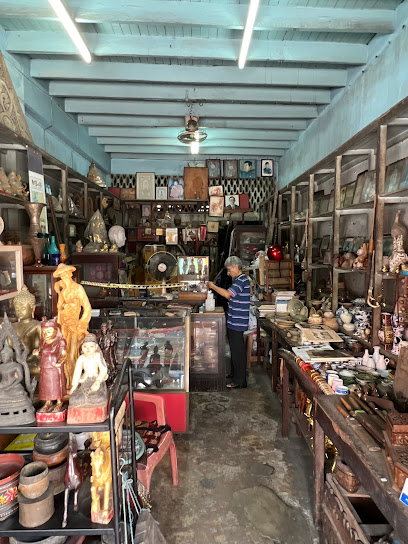
Essential bars & hidden hideouts
Zoe in Yellow
Experience the vibrant nightlife of Chiang Mai at Zoe in Yellow, a lively night club and bar offering great music, drinks, and a welcoming atmosphere.
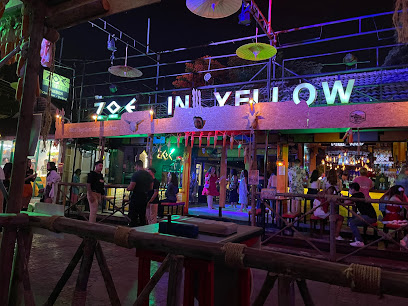
Boy Blues Bar
Experience the pulse of Chiang Mai at Boy Blues Bar, where soulful blues melodies and a lively atmosphere await every night.
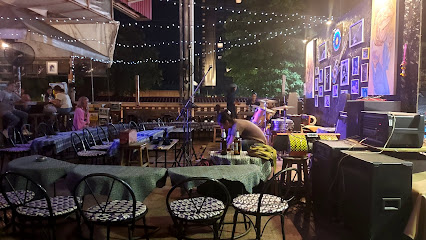
Myst MAYA Chiang Mai
Discover the vibrant nightlife of Chiang Mai at Myst MAYA, a premier cocktail bar and nightclub offering signature drinks and stunning views.
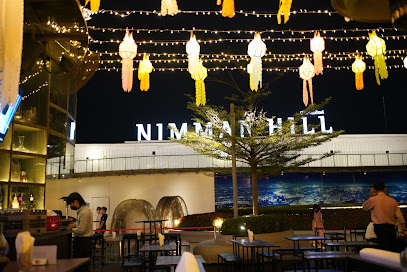
Roots Rock Reggae Chaingmai
Experience the vibrant fusion of Thai cuisine and reggae beats at Roots Rock Reggae in Chiang Mai, a must-visit for food and music lovers.
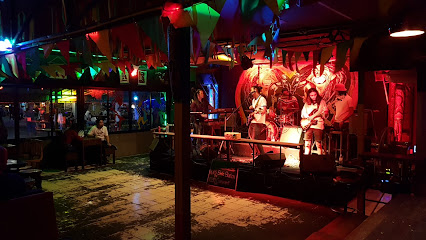
Nophaburi Bar | Thai Cocktail
Discover Nophaburi Bar, a vibrant cocktail haven in Chiang Mai where unique Thai-inspired drinks meet a lively atmosphere.
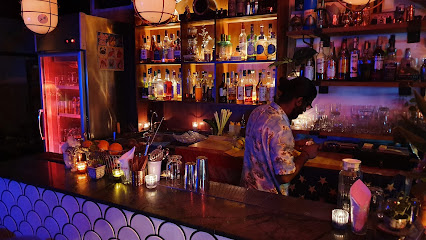
My Place Lounge Chiang Mai
Discover My Place Lounge in Chiang Mai: a lively sports bar serving American cuisine, cocktails, and a welcoming atmosphere for all travelers.
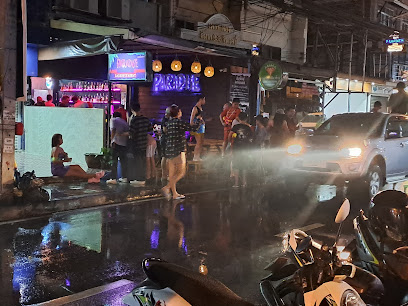
THC Rooftop bar
Experience the magic of Chiang Mai at THC Rooftop Bar, where stunning views and a unique drink selection await you in an inviting atmosphere.
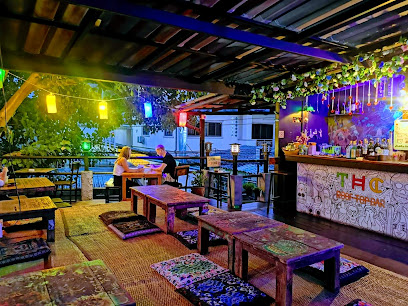
Writer's Club & Wine Bar
Discover the Writer's Club & Wine Bar in Chiang Mai, a charming retreat for literature lovers and wine enthusiasts alike, blending relaxation with creativity.
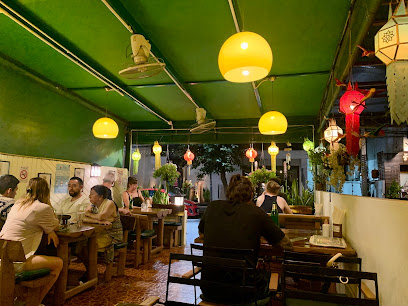
My Bar
Discover My Bar in Chiang Mai: A vibrant bar with unique ambience, perfect for unwinding and enjoying local culture.
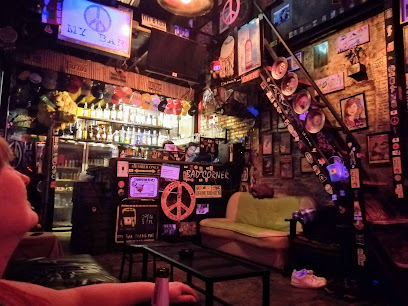
Good bar @ icon park
Discover the vibrant nightlife at Good Bar in Icon Park, Chiang Mai, where delicious drinks and lively atmosphere create unforgettable evenings.
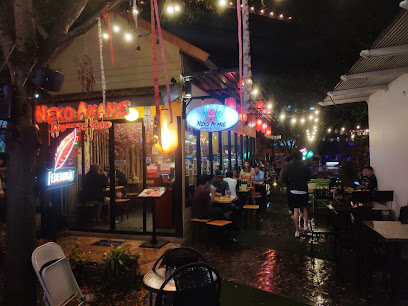
Hardcocktail Bar
Experience the vibrant nightlife of Chiang Mai at Hardcocktail Bar, where expertly crafted cocktails meet a cozy atmosphere and lively music.
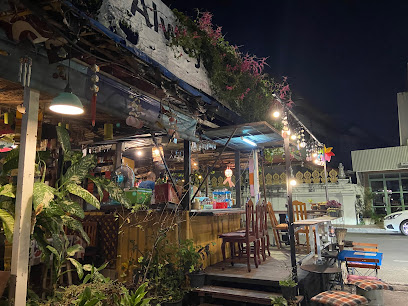
Chill out bar
Discover Chill Out Bar in Chiang Mai - a cozy spot for affordable drinks and relaxing vibes in the heart of Thailand's cultural gem.
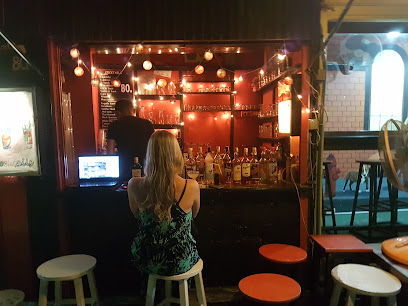
Surr Bar
Experience the vibrant nightlife of Chiang Mai at Surr Bar, a stylish cocktail destination with breathtaking views and exquisite drinks.
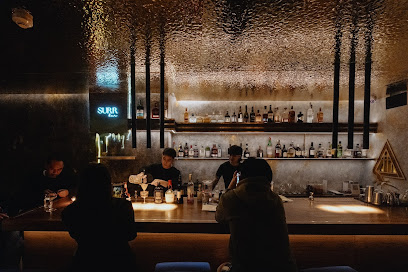
Minimal Bar
Experience the Chic Ambiance and Affordable Drinks at Minimal Bar, Chiang Mai's Trendiest Nightlife Spot.
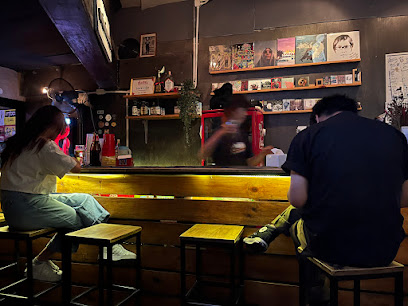
Lost Hut
Experience the vibrant nightlife of Chiang Mai at Lost Hut, a cozy bar offering a unique blend of local culture and refreshing drinks.
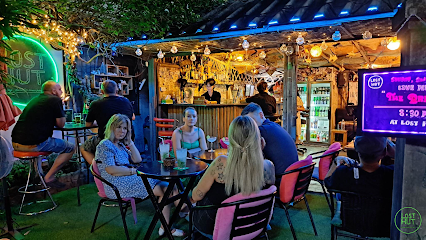
Travel experiences inspired by this city
Explore more travel diariesLocal Phrases
-
- Helloสวัสดี
[sawasdee] - Goodbyeลาก่อน
[la kon] - Yesใช่
[chai] - Noไม่
[mai] - Please/You're welcomeโปรด/ยินดี
[proht/yin dee] - Thank youขอบคุณ
[kop khun] - Excuse me/Sorryขอโทษ
[kor toht] - How are you?สบายดีไหม?
[sabai dee mai?] - Fine. And you?สบายดีค่ะ คุณล่ะ?
[sabai dee ka kun la?] - Do you speak English?พูดภาษาอังกฤษได้ไหม?
[poot paa saa angkrit dai mai?] - I don't understandฉันไม่เข้าใจ
[chan mai khao jai]
- Helloสวัสดี
-
- I'd like to see the menu, pleaseขอดูเมนูหน่อย
[kor doo menu noi] - I don't eat meatฉันไม่กินเนื้อ
[chan mai kin neuua] - Cheers!ชนแก้ว!
[chon kaeo] - I would like to pay, pleaseชำระเงินหน่อย
[cham ra ngoen noi]
- I'd like to see the menu, pleaseขอดูเมนูหน่อย
-
- Help!ช่วยด้วย!
[chuai duay] - Go away!ไปห่างๆ!
[pai yang yang] - Call the Police!โทรตำรวจ!
[tor tamruat] - Call a doctor!โทรหมอ!
[tor mor] - I'm lostฉันหลงทาง
[chan long tang] - I'm illฉันไม่สบาย
[chan mai sabai]
- Help!ช่วยด้วย!
-
- I'd like to buy...ฉันต้องการซื้อ...
[chan tong gaan seuu...] - I'm just lookingฉันแค่ดูอย่างเดียว
[chan kae du yang diao] - How much is it?ราคาเท่าไหร่?
[ra kha thao rai?] - That's too expensiveแพงเกินไป
[paeng gein pai] - Can you lower the price?ลดราคาได้ไหม?
[lot ra kha dai mai?]
- I'd like to buy...ฉันต้องการซื้อ...
-
- What time is it?ตอนนี้กี่โมงแล้ว?
[ton nee kee mong laeo?] - It's one o'clockขึ้นหนึ่ง
[kuen neung] - Half past (10)สามทุ่ม
[sam thum] - Morningเช้า
[chao] - Afternoonบ่าย
[bai] - Eveningเย็น
[yen] - Yesterdayเมื่อวาน
[meua wan] - Todayวันนี้
[wan nee] - Tomorrowพรุ่งนี้
[proong nee] - 1หนึ่ง
[neung] - 2สอง
[song] - 3สาม
[sam] - 4สี่
[si] - 5ห้า
[ha] - 6หก
[hok] - 7เจ็ด
[jet] - 8แปด
[paet] - 9เก้า
[gao] - 10สิบ
[sip]
- What time is it?ตอนนี้กี่โมงแล้ว?
-
- Where's a/the...?...อยู่ที่ไหน?
[...yoo tee nai?] - What's the address?ที่อยู่อยู่ที่ไหน?
[tee yoo yoo tee nai?] - Can you show me (on the map)?ช่วยแสดงที่ (ในแผนที่) หน่อยได้ไหม?
[chuai sa-dang tee (nai paen tee) noi dai mai?] - When's the next (bus)?รถ (รถบัส) ตัวต่อไปเวลาไหน?
[rodt (rodt bus) tua dtau bpai wayla nai?] - A ticket (to ....)บัตร (ไป...)
[bat tra (bpai...)]
- Where's a/the...?...อยู่ที่ไหน?
History of Chiang Mai
-
Chiang Mai, meaning 'New City', was founded in 1296 by King Mengrai. It served as the capital of the Lanna Kingdom, which was a powerful and influential region in northern Thailand. The city was strategically located along the Ping River, which enabled it to become a major hub for trade and culture in the region.
-
During the 15th century, under the reign of King Tilokaraj, Chiang Mai reached its zenith. This period marked extensive developments in art, religion, and architecture. Wat Chedi Luang, one of the city's most iconic temples, was originally built during this period. The city also became a major center for Theravada Buddhism.
-
In 1558, Chiang Mai was conquered by the Burmese forces and remained under Burmese control for over two centuries. This period saw the decline of the Lanna Kingdom's power and the city experienced economic and cultural stagnation. However, the influence of Burmese art and architecture can still be seen in some of Chiang Mai's temples and monuments.
-
In the late 18th century, King Taksin of Siam (now Thailand) managed to drive out the Burmese, and Chiang Mai became a tributary state of Siam. By the late 19th century, the city was fully incorporated into the Kingdom of Siam. During this period, Chiang Mai began to modernize, influenced by the broader trends of Westernization and centralization occurring in Thailand.
-
The early 20th century saw a revival of Lanna culture and traditions in Chiang Mai. Efforts were made to preserve the unique heritage of the region, including its language, customs, and religious practices. This period also saw the establishment of the Chiang Mai University in 1964, which became a center for cultural and academic activities in northern Thailand.
-
Today, Chiang Mai is a vibrant city that beautifully blends its rich historical past with modern development. It's a major tourist destination known for its well-preserved temples, bustling markets, and vibrant festivals such as the Yi Peng Lantern Festival and Songkran. Additionally, the city is a hub for digital nomads and expatriates, contributing to its cosmopolitan atmosphere.
Chiang Mai Essentials
-
Chiang Mai is accessible by air, road, and rail. The city is served by Chiang Mai International Airport (CNX), which has direct flights from major Asian cities and domestic flights from Bangkok, Phuket, and other Thai cities. The airport is located about 3 kilometers southwest of the city center. For those traveling by train, there are daily services from Bangkok to Chiang Mai, with the journey taking approximately 11-15 hours depending on the type of train. Buses are another option, with several companies offering services from Bangkok and other nearby cities, taking around 9-12 hours.
-
Chiang Mai offers various transportation options including songthaews (red trucks), tuk-tuks, taxis, and motorbike rentals. Songthaews are a popular and affordable way to get around the city, operating on fixed routes or available for hire. Tuk-tuks provide a quicker but slightly more expensive option for short trips. Taxis are available but less common for hailing on the street; it's advisable to book via apps like Grab. Motorbike rentals are popular for those looking to explore at their own pace, but ensure you have a valid license and wear a helmet.
-
The official currency in Thailand is the Thai Baht (THB). Credit and debit cards are widely accepted in hotels, restaurants, and larger shops, but it's wise to carry cash for smaller establishments, street vendors, and local markets. ATMs are plentiful throughout Chiang Mai, and currency exchange services are available at the airport, banks, and exchange booths across the city.
-
Chiang Mai is generally a safe destination for tourists, but like any city, it's important to stay vigilant. Petty theft, such as pickpocketing, can occur in crowded areas and markets. Areas like the Night Bazaar and Tha Phae Gate are popular with tourists and can be hotspots for scams and minor crimes. Avoid walking alone at night in poorly lit areas and always keep an eye on your belongings.
-
In case of emergency, dial 191 for police assistance, 1669 for medical emergencies, and 199 for fire services. Chiang Mai has several hospitals with international standards, such as Chiang Mai Ram Hospital and Bangkok Hospital Chiang Mai. It's advisable to have travel insurance that covers medical emergencies. Pharmacies are widely available for minor health issues and over-the-counter medications.
-
Fashion: Do dress modestly, especially when visiting temples. Avoid wearing revealing clothing. Religion: Do show respect in temples; remove your shoes before entering and dress conservatively. Public Transport: Do be courteous and offer your seat to monks and the elderly. Don't eat or drink on public transport. Greetings: Do greet locals with a 'wai' (a slight bow with hands pressed together). Eating & Drinking: Do try local cuisine and accept food offerings graciously. Don't point your feet at people or religious objects, as it's considered disrespectful.
-
To experience Chiang Mai like a local, visit the local markets such as Warorot Market and Muang Mai Market for fresh produce and unique goods. Engage with locals, who are often friendly and willing to share stories about their city. Don't miss out on taking a cooking class to learn how to prepare authentic Thai dishes. Explore the lesser-known temples and take a stroll along the Ping River for a serene experience.
Trending Landmark in Chiang Mai
-
Tha Phae Gate
-
Chiang Mai Night Bazaar
-
Wat Phra Singh Woramahawihan
-
Wat Chedi Luang
-
Wat Phra That Doi Suthep
-
Wat Umong The Suan Buddha Dhamma
-
Kruba Srivichai Monument
-
Royal Park Rajapruek
-
Three Kings Monument
-
Hmong Doi Pui Village
-
Doi Suthep-Pui National Park
-
Wat Pha Lat
-
Bhubing Palace
-
Wat Chiang Man
-
Baan Kang Wat
Nearby Cities to Chiang Mai
-
Things To Do in Pai
-
Things To Do in Mae Hong Son
-
Things To Do in Chiang Rai
-
Things To Do in Nan
-
Things To Do in Sukhothai
-
Things To Do in Kyaiktiyo
-
Things To Do in Hpa-An
-
Things To Do in Inle Lake
-
Things To Do in Loei
-
Things To Do in Naypyidaw
-
Things To Do in Kalaw
-
Things To Do in Muang Sing
-
Things To Do in Luang Prabang
-
Things To Do in Vang Vieng
-
Things To Do in Yangon





























